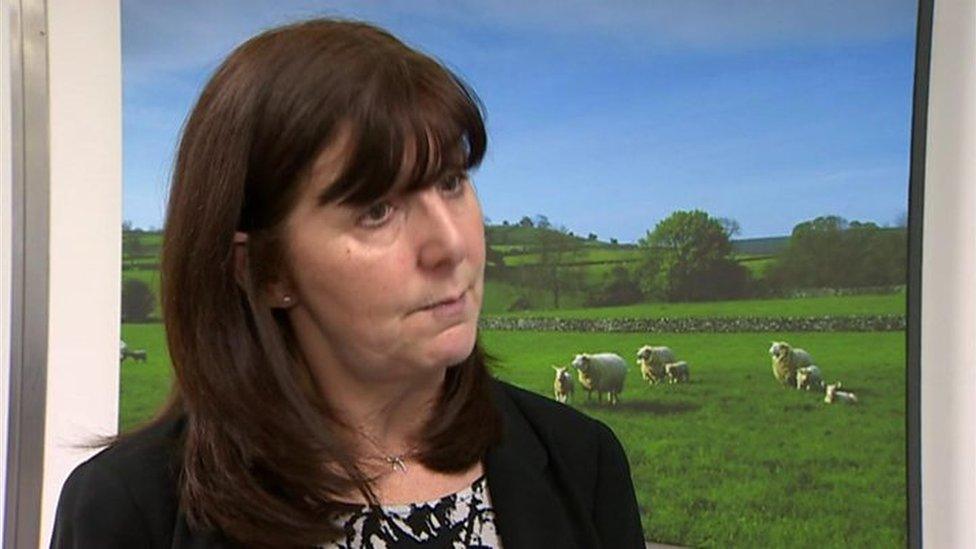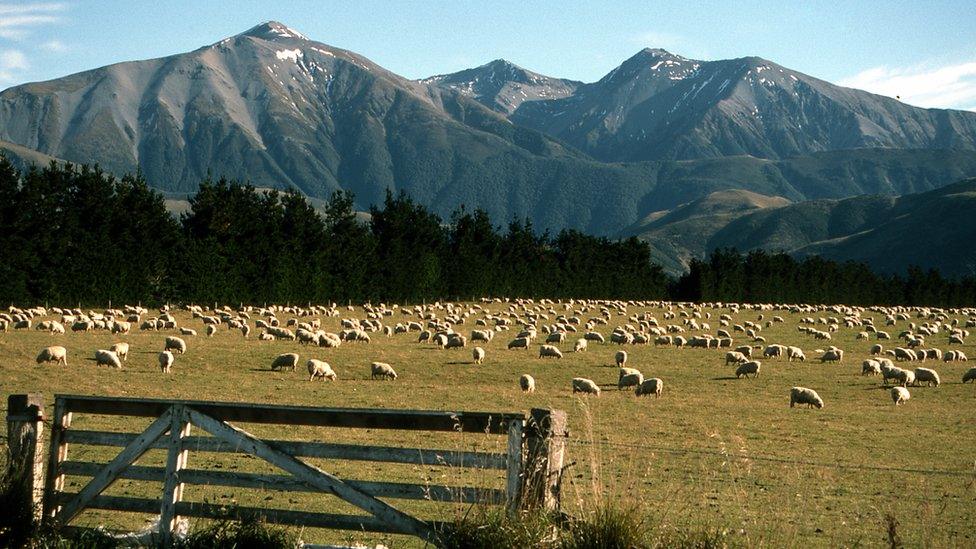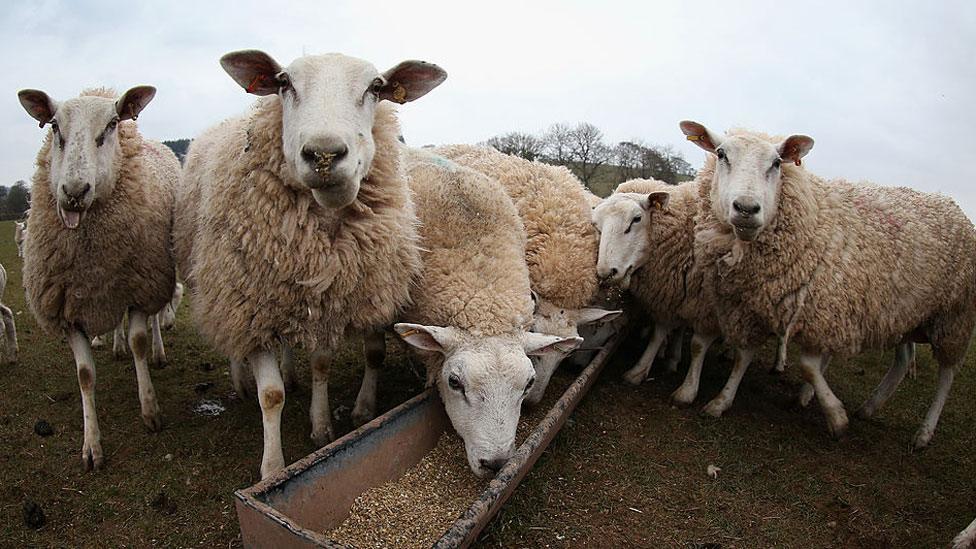Welsh rural minister in bid to strengthen New Zealand links
- Published
- comments

Lesley Griffiths said New Zealand is a small globally trading nation like Wales
Wales' Rural Affairs Secretary Lesley Griffiths is in New Zealand to "strengthen links between the two countries" ahead of Brexit.
She said there is a lot Wales and New Zealand can learn from each other.
The trip comes despite her previous warnings that a UK-New Zealand free trade deal could "destroy" the Welsh lamb industry.
Meat Promotion Wales chief Gwyn Howells said the nations could co-operate as they produce lamb in different seasons.
Speaking ahead of her visit Ms Griffiths said: "Like Wales, New Zealand is a small outward-facing, globally trading nation and I believe there is a lot we can learn from each other."
Ms Griffiths will visit the Auckland and Manawatu regions to see dairy, sheep and beef farms.
She will also meet representatives of the country's main exporters including dairy company Fonterra which accounts for 25% of the country's exports.

Auckland is among the regions that will feature on the trip
"This visit will enable us to learn from their food and drinks industry - a key sector for us post-Brexit," she said.
"It is also an opportunity to hear about New Zealand's experiences in managing significant change in agricultural policy which is particularly timely as we work to secure a resilient and thriving industry in Wales after leaving the EU."
The UK will leave the EU on 29 March 2019 ahead of a 21-month transition period. During that time UK ministers will be able to negotiate free-trade deals with countries outside the EU.
The UK government has already signalled its intention to strike such a deal with New Zealand.
However last year, Ms Griffiths told the Welsh Assembly's Rural Affairs Committee the prospect of UK-New Zealand free trade agreement was cause for concern.
"If we have this huge influx of New Zealand lamb it will absolutely destroy the Welsh lamb industry," she said.
"I do not want to say 'I told you so' but that was one of the issues we tried to get out there ahead of the referendum."

Sheep farming in New Zealand - a threat to our livelihoods, some Welsh farmers have claimed
Gwyn Howells, chief executive of Meat Promotion Wales, said lessons could be learned from a country which exported 95% of its lamb and more than 80% of its beef.
"One thing they've worked very, very well in achieving is an increase in the shelf life of their product as it reaches the consumer," he said.
"As we seek markets further afield in the future - in the Middle East and in north America hopefully - we will need to adapt our ability to increase the shelf life of our product as well."
Mr Howells also saw the potential for Wales and New Zealand to co-operate due to their "reverse seasons" - producing lamb at different times of the year.
"We are producing for six months when they are not and vice versa," he said, pointing to north America as a key market the two nations could serve together.
"Before we get to that stage we need to resolve the situation regarding the challenges that Brexit poses in terms of market access to Europe and indeed to the UK market."
- Published1 February 2017
